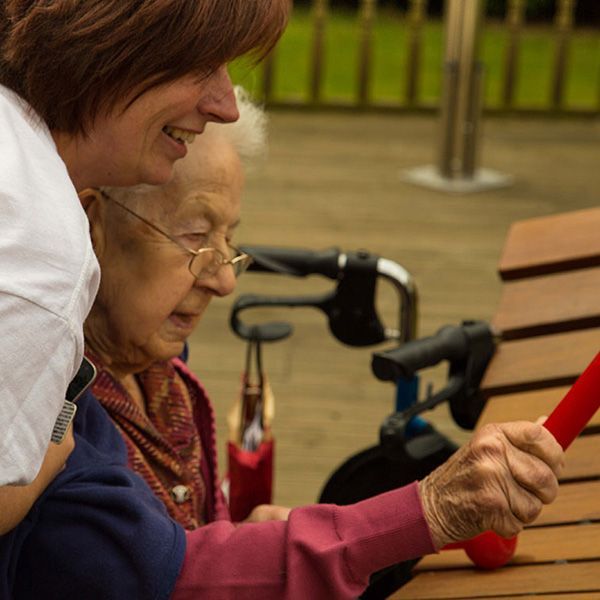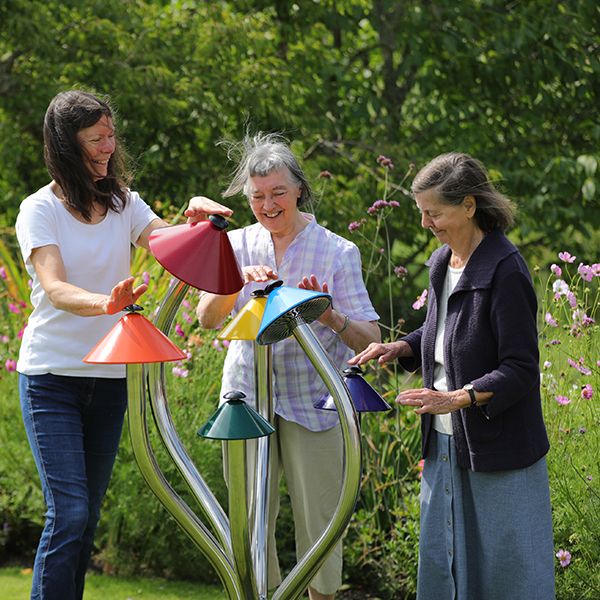
Music Therapy For Seniors, Allow me to share a brief tale about my grandmother, Elsa. Every morning at 82, she gets up, brews herself a cup of green tea, and here’s the unusual twist on her favorite vintage jazz playlist. Ella Fitzgerald is usually crooning in the background while she does a little light stretching and waters her plants. That’s her practice. And you know what, then? Elsa recalls more song lyrics than I do my passwords.
Having spent an inordinate amount of time geeking out about mitochondria and biochemical pathways, I can state without a doubt that these tiny, apparently basic behaviors like listening to music pack a significant punch when it comes to aging properly. You don’t have to reside in a laboratory to lengthen your health span. A long way may be achieved by only a little rhythm, movement, and conscious action.
With particular emphasis on how music isn’t only healthy for the spirit but also wonderful for the brain, let’s explore some scientifically supported advice on aging well.
Music is not only background noise. It’s a whole-body, whole-brain event. Listening to your favorite song activates several brain regions, the auditory cortex, hippocampus (hello, memory!), motor cortex, and even the prefrontal cortex all of which process rhythm, lyrics, and emotion much like Times Square.
For older people, this involvement can assist in reducing cognitive decline. Research from Johns Hopkins, in fact, reveals that music stimulates cerebral networks akin to those of brain-training activities. Even more amazing is that music may reach dementia or Alzheimer’s sufferers who no longer react to talk. The beat, the melody it draws on deep-seated memory banks.
Consider this: Make a customized playlist of sentimental music for your loved one. Songs from their teenage years or early twenties usually have the most emotional and memory ties.

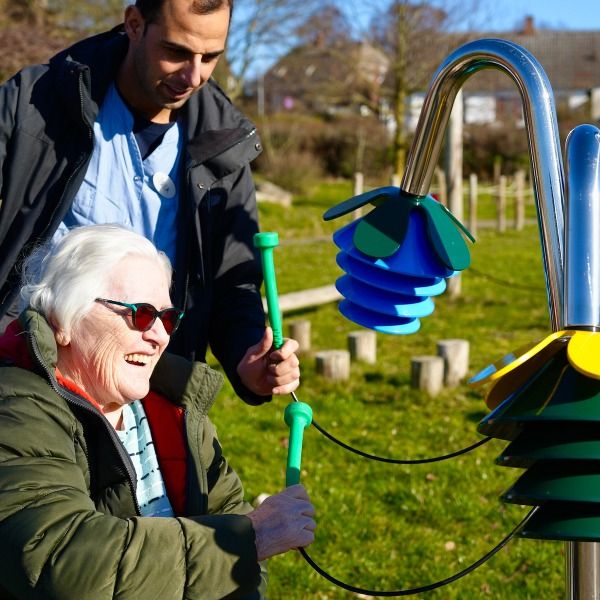
Music Therapy For Seniors, Now, let us take it one step further literally. Combine movement with music to create an unbeatable, long-lasting pair. Dancing to music not only raises your mood but also enhances cardiovascular health, coordination, and balance. It’s a pleasant, low-impact approach to increase mental and physical function both.
A Frontiers in Human Neuroscience study indicated that older people who danced had superior brain structure and function compared to those who only exercised.
What for? Dance is difficult since it requires moving across space, reacting to rhythm, and learning new patterns. It is mental aerobics!
Consider this: Every morning, choose music and simply dance for three minutes. Extra points if you ask someone to accompany you.
Music Therapy For Seniors, Aging brings its own stresses, health issues, loss of freedom, and loneliness. Let’s be honest. Chronic stress is not only detrimental to your mood; it accelerates biological aging by shortening telomeres, the protective caps at the end of your chromosomes.
The encouraging news? Studies have proven that music, especially soothing types like classical or nature-inspired soundscapes, can lower cortisol levels. A 2020 study published in Nature Reviews Neuroscience found that music could enhance sleep quality and lower anxiety in seniors.
Give this a shot: End your day with 15 minutes of soothing music. Let it serve as a signal for your brain to enter rest-and-repair mode.
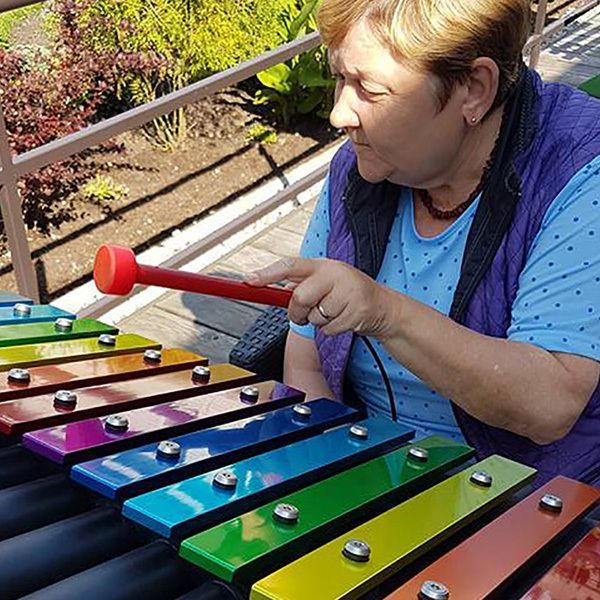
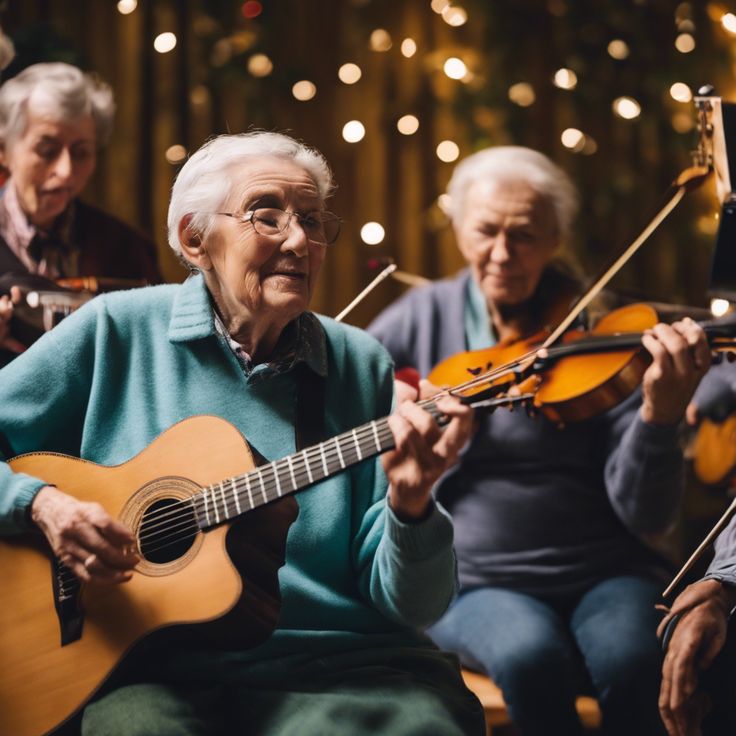
Music has a social aspect too, therefore, let’s not ignore it. Joining a choir, going to music therapy classes, or just singing along with friends helps to build community, something quite protective for health and lifespan.
Especially among the elderly, social isolation has been connected to higher chances of cognitive impairment and even death. Music unites people, breaks the ice, and inspires shared experiences.
One interesting research study found that older people who sang together in a choir had better mental health, less loneliness, and even fewer healthcare visits. Indeed, singing “Hey Jude” may really be a component of a wellness strategy.
Consider this: Urge elderly homes or community centers to hold frequent music-themed events. Alternatively, gather friends or family to form your own tiny choir.
Music Therapy For Seniors, Neuroplasticity is the incredible capacity of the brain to reorganize itself and create new connections. Remarkably, The brain doesn’t stop working when you rest. Especially if they participate in mentally demanding tasks like learning a new instrument, seniors can still develop new neurons and fortify brain networks.
Indeed, you heard me. It’s never too late to begin studying the ukulele.
Actually, performing music calls for memory recall, auditory feedback, and fine motor skills. A University of Zurich study discovered that seniors who took piano lessons for only six months showed improvements in their verbal recall and concentration.
Give this a shot: Select a tool you have always desired to utilize and proceed cautiously. Practicing just fifteen minutes each day can help.
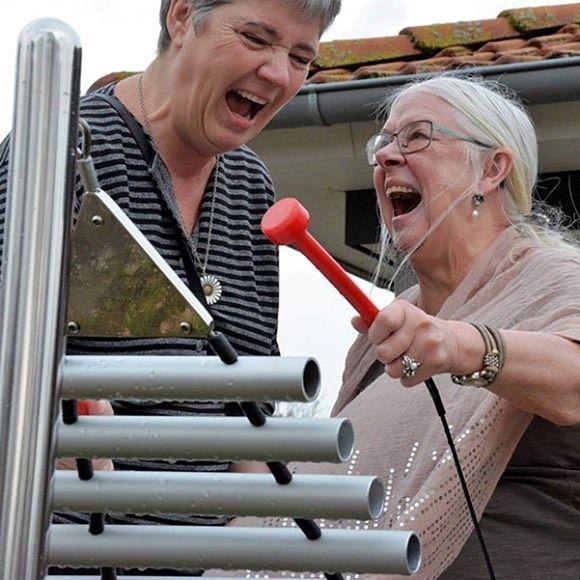
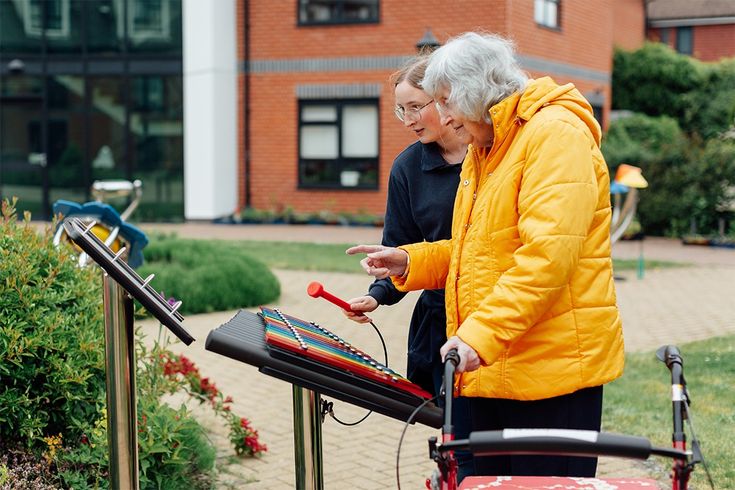
Patterns delight our minds. Music is a great tool for anchoring habits, memorizing names, or perhaps using medication since its predictable structure fits our brains’ love of patterns. Some carers employ musical signals to enable more independent daily task performance for dementia sufferers.
Consider it like this: A timetable can be made into a soundtrack. Imagine brushing your teeth to a silly rhyme. That’s a hidden memory technique.
Consider this: If you are looking after someone with memory problems, consider matching tunes to particular rituals, such as a “breakfast song” or “time-to-go-out” tune. Repetition and rhythm help to lock things in.
Aging has no one silver bullet; rather, there are many tiny golden ones. Every good deed increases your wellness bank account from movement to attitude, community to creativity, and indeed, music to memory.
Should you remove one item from this essay, let it be this, longevity is not about eternal life. It’s about living well for as long as feasible. Out of interest. Through relationships. Perhaps, with several Elvis songs playing continuously.
Feel free to continue. Increase the volume. Tap your feet. If you have to, sing loudly and off-key. Making music a part of your life enriches your days but also helps to create a better, brighter future for your brain.
Excuse me now; I believe it’s time for a dance break.
